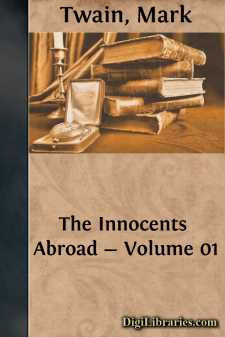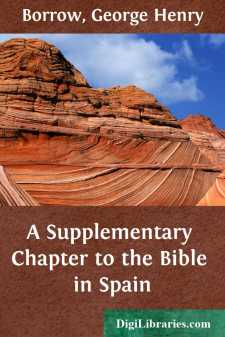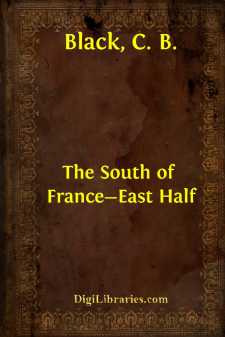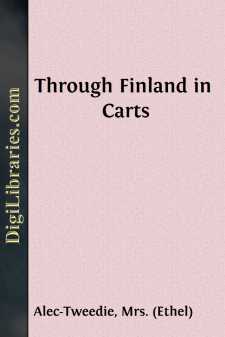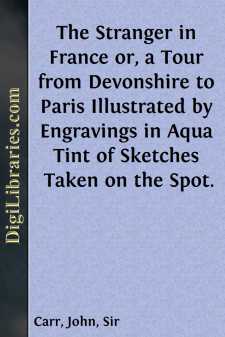Travel
- Africa 29
- Alaska 3
- Asia 46
- Australia & Oceania 26
- Canada 31
- Caribbean & West Indies 5
- Central America 1
- Europe
- General 39
- Maps & Road Atlases 1
- Mexico 10
- Middle East 18
- Polar Regions 7
- Reference 11
- Restaurants 1
- Russia 6
- South America 16
- United States 71
Europe Books
Sort by:
by:
Mark Twain
CHAPTER I. For months the great pleasure excursion to Europe and the Holy Land was chatted about in the newspapers everywhere in America and discussed at countless firesides. It was a novelty in the way of excursions—its like had not been thought of before, and it compelled that interest which attractive novelties always command. It was to be a picnic on a gigantic scale. The participants in it,...
more...
PREFATORY NOTE In 1845 Richard Ford published his Hand-Book for Travellers in Spain and Readers at Home [2 Vols. 8vo.], a work which still commands attention, and the compilation of which is said to have occupied its author for more than sixteen years. In conformity with the wish of Ford (who had himself favourably reviewed The Bible in Spain) Borrow undertook to produce a study of the Hand-Book for...
more...
by:
Joel Cook
The American transatlantic tourist, after a week or more spent upon the ocean, is usually glad to again see the land. After skirting the bold Irish coast, and peeping into the pretty cove of Cork, with Queenstown in the background, and passing the rocky headlands of Wales, the steamer that brings him from America carefully enters the Mersey River. The shores are low but picturesque as the tourist moves...
more...
by:
C. B. Black
PREFACE. This Guide-book consists of Routes which follow the course of the main Railways. To adapt these Routes as far as possible to the requirements of every one the Branch Lines are also pointed out, together with the stations from which the Coaches run, in connection with the trains, to towns distant from the railway. The description of the places on these branch lines is printed either in a closer...
more...
by:
F. Herve
CHAPTER I. Hints to the English visiting Paris as to their demeanour towards the Parisians, and advice as to the best mode of proceeding in various transactions with them. An appeal to candour and justice against national prejudice. Happiness is the goal for which mankind is ever seeking, but of the many roads which the imagination traces as the surest and nearest to that desideratum, few, perhaps...
more...
CHAPTER IOUR FIRST PEEP AT FINLAND It is worth the journey to Finland to enjoy a bath; then and not till then does one know what it is to be really clean. Finland is famous for its baths and its beauties; its sky effects and its waterways; its quaint customs and its poetry; its people and their pluck. Finland will repay a visit. Foreign travel fills the mind even if it empties the pocket. Amusement is...
more...
OKEBOURNE CHACE. FELLING TREES. The great house at Okebourne Chace stands in the midst of the park, and from the southern windows no dwellings are visible. Near at hand the trees appear isolated, but further away insensibly gather together, and above them rises the distant Down crowned with four tumuli. Among several private paths which traverse the park there is one that, passing through a belt...
more...
by:
John Carr
CHAPTER I. Torr Abbey.—Cap of Liberty.—Anecdote of English Prejudice.—Fire Ships.—Southampton River.—Netley Abbey. It was a circumstance, which will be memorable with me, as long as I live, and pleasant to my feelings, as often as I recur to it, that part of my intended excursion to the Continent was performed in the last ship of war, which, after the formal confirmations of the peace,...
more...
THE SOUTH OF FRANCE. If it is only by an effort that we appreciate the valour of Columbus in the XV century, his secret doubts, his temerity, how much fainter is our conception of the heroism of the early Mediterranean navigators. Steam has destroyed for us the awful majesty of distance, and we can never realise the immensity of this “great Sea” to the ancients. To Virgil the adventures of the...
more...
CHAPTER I. LONDON TO PARIS. Few people now-a-days go direct to Paris from America. They land in Liverpool, get at least a birds-eye view of the country parts of England, stay in London a week or two, or longer, and then cross the channel for Paris. The traveler who intends to wander over the continent, here takes his initiatory lesson in the system of passports. I first called upon the American...
more...


